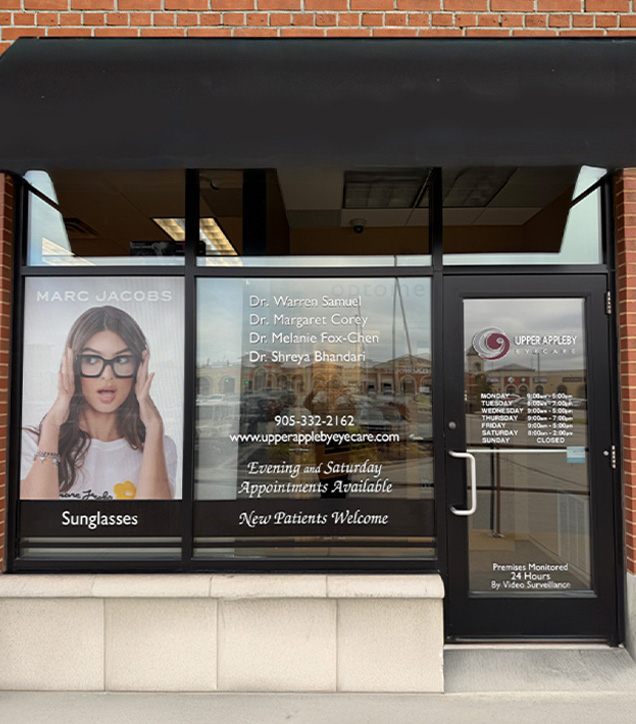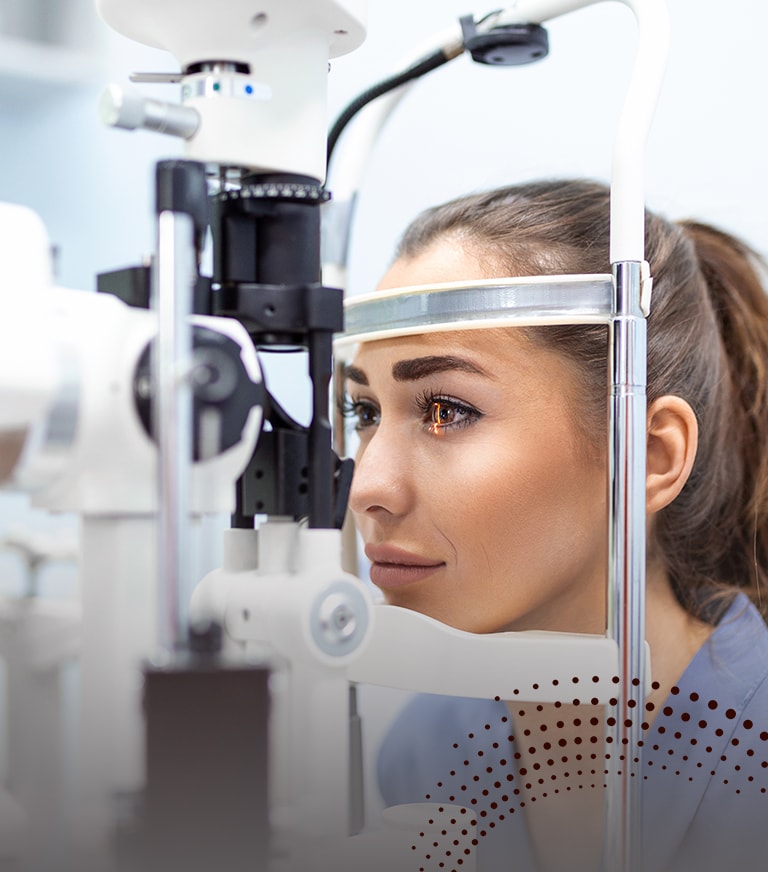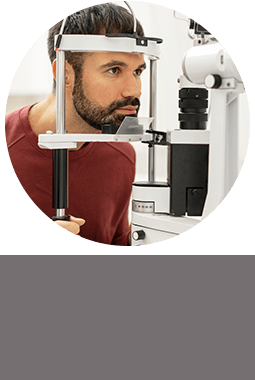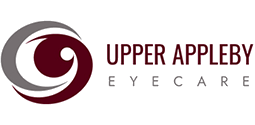Safeguard Your Vision with Eye Exams
Eye exams are crucial for both your eye health and overall well-being. Our comprehensive exams assess more than the clarity of your vision. We also screen for early signs of eye disease and eye conditions such as dry eye, glaucoma, myopia, and more.
At Upper Appleby Eyecare, getting to know you and your family is a core part of our care philosophy. We take time to understand your life so our treatments and advice are tailored to your needs.
Protect both your and your family’s vision today and book your comprehensive eye exam with our team.
Request Appointment
How Often Do You Need an Eye Exam?
As general practice, we follow the the Canadian Association of Optometrists (CAO) guidelines for eye exam frequency. CAO recommends adults aged 20-64 should have an eye exam at least every 2 years. After 65, CAO encourages annual eye exams.
For children, annual eye exams are recommended, although the exact frequency depends on the child’s age and any existing eye conditions.
Everyone’s eyes are different, so we’ll recommend an eye exam schedule tailored to you after your first appointment.
Request AppointmentWhat to Expect During Your Eye Exam
When you come in for an eye exam, we’ll guide you through some diagnostic tests and images. We’ll take photos of your eye and retina, check your peripheral vision, and test your eye pressure.
During your exam, we’ll also dilate your eyes, allowing your optometrist to get a clearer view inside your eye. To dilate, we’ll administer special eye drops that increase the size of your pupils. You may notice your eyes are more sensitive to light for a few hours after dilation, so we recommend bringing sunglasses to wear after your appointment.
Once the diagnostic tests are complete, your optometrist will evaluate your prescription. If there are any changes, they’ll guide you through the process of selecting new glasses with an optician or booking a contact lens fitting, if you prefer.
Our Technology for Comprehensive Screenings
Many eye conditions and eye diseases have no noticeable symptoms during the early stages. That means you aren’t aware there’s a problem with your eye health until the condition has progressed. However, early detection and diagnosis can make a huge difference in managing and treating eye diseases. That’s why we include comprehensive screenings in every eye exam.
During your eye exam, you’ll experience a variety of tests that screen for eye conditions such as dry eye disease, glaucoma, age-related macular degeneration (AMD), diabetic eye diseases, and more. Our diagnostic technology helps us check for changes to your eye health and signs of eye disease that aren’t visible to the naked eye.
Zeiss Clarus 50 Fundus Camera
Fundus photography captures in-depth images of the retina, optic nerve, and surrounding blood vessels. It provides a clear view of the back of the eye, which is necessary to detect eye diseases such as diabetic retinopathy, macular edema, AMD, and glaucoma.
Zeiss Cirrus OCT
Optical coherence tomography (OCT) is a noninvasive imaging technique that takes high-resolution images of the retina. These images show cross sections of your retina and can measure your retinal thickness and indicate signs of retinal diseases like AMD and diabetic retinopathy.
OCT scans can also detect changes to other eye structures, such as the cornea, optic nerve, and blood vessels.
Visual Field Testing
Visual field testing measures the entire area of peripheral vision while the eye is focused on a central point. This test helps check for any changes to peripheral vision or blind spots, which can indicate eye diseases such as open-angle glaucoma.
MYAH Optical Biometer & Corneal Topographer
This comprehensive device measures a variety of eye structures and conducts several tests, including optical biometry, which measures the axial length, astigmatism, and the space between the cornea and the iris; corneal topography, which measures the curve of the cornea; and pupillometry, which measures the size and reactivity of the pupils.
The MYAH device is also helpful for contact lens fittings and myopia management in nearsighted kids.
Corneal Pachymetry
A corneal pachymetry test measures the thickness of your cornea, the clear, front part of your eye. This helps us screen for conditions such as glaucoma, corneal diseases like keratoconus, eye injuries, and refractive errors. It is also used to determine if you’re eligible for laser eye surgery.
Book Your Eye Exam Today
At Upper Appleby Eyecare, your ocular health is our focus. During your appointment, we’ll discuss your health, learn about your lifestyle, and answer all your questions. Our advice is rooted in both our knowledge and experience, as well as an understanding of your individual needs and preferences.
If you’re ready for eye care that is here to serve you, book your eye exam today. We’re ready to safeguard your vision together for many years to come.
Request AppointmentVisit Our Location
Find us on the first floor of the Upper Appleby Professional Centre, off Appleby Line. Parking is free.

Our Address
- 1960 Appleby Line, Suite 12
- Burlington, ON L7L 0B7
Contact Information
- Phone: 905-332-2162
- Fax: 905-332-2162
- Email: info@upperapplebyeyecare.com
Hours of Operation
- Monday: 9:00 AM – 5:00 PM
- Tuesday: 9:00 AM – 7:00 PM
- Wednesday: 9:00 AM – 5:00 PM
- Thursday: 9:00 AM – 7:00 PM
- Friday: 9:00 AM – 5:00 PM
- Saturday: 8:00 AM – 2:00 PM
- Sunday: Closed
Our Brands















